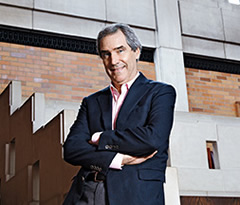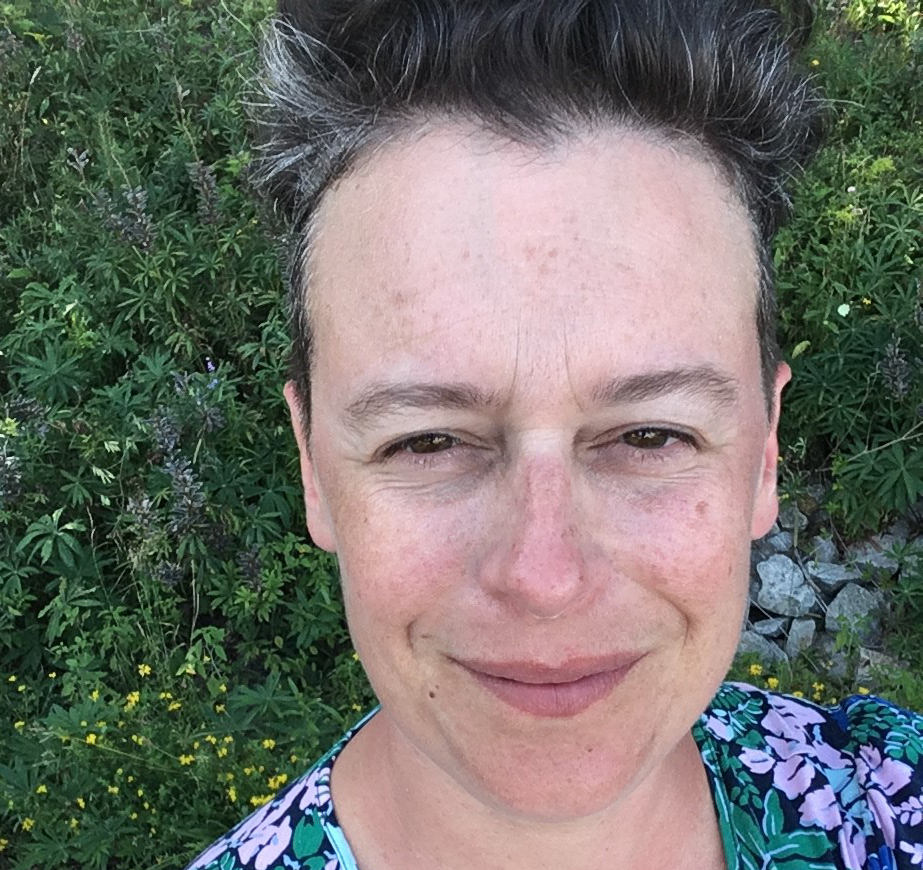While it’s not uncommon for engineering professors to have worked as engineers, or law professors to have worked as lawyers, you don’t find many political scientists who can draw on their experiences as a politician – much less as Opposition leader.
But then there’s Michael Ignatieff. The former Liberal Party leader (and before that Harvard University professor) has taken up the academic life once again – at U of T. Lisa Bryn Rundle sat down with Ignatieff in his Massey College office recently to talk about his political education.
How does it feel to be back in the classroom?
I’m doing what comes naturally. It feels good. I’m teaching things I taught before but I’m teaching them, I think, in a new way.
Because of your political experience?
Maybe a little. If you’re in politics, you get impatient with abstract talk. So I hope it’s more policy-relevant as opposed to pure theory.
How else has your experience in politics affected your approach to teaching?
I think in politics you learn how difficult it is to get anything done.
Depressing.
No, it’s not depressing. It’s just difficult. I think it’s important that students know what the world is actually like out there.
There’s a general frustration with how hard it is to get things done. Why is it not depressing in your view?
I’m a passionate idealist about education. But it’s no use teaching kids how it ought to be unless they know how it is. And then the whole business of life is to go from what is to what could be. Practical political experience has a double effect: it makes you more aware of how difficult it is to get anything done but also how important it is to get things done.
In terms of the effect on your teaching, I wondered if there were also practical skills like you can remember the names of your students more quickly because it’s an important politician’s tool…
I’m afraid my students will discover that I’m as bad at that as I was in politics.
Will you cover any chapters on Michael Ignatieff in your courses?
I am going to teach a course in third-year political science called Renewing Canadian Democracy. There will be a class on Parliament and a class on political parties. How can I avoid talking about my own experience of those institutions? So, I will. Sure. It won’t be about me, but about the institutions.
You’re not going to somehow delicately erase yourself.
No. But nor am I going to open my veins.
Would you recommend that your poli-sci students go into politics as a learning experience?
Oh sure. I don’t think there’s any better way to figure out why it’s so difficult to get things done and how institutions work. I’m mostly here to preach the gospel of public service. Step up!
Perception means so much in politics. What’s the biggest misconception about academics?
Woolly. Otherworldly. Irrelevant.
The word “elitist” comes up a fair bit.
This is a big subject. I’m struck on the one hand by the extreme anxiety to be relevant. Everybody who teaches at a publicly funded university knows who pays the bill. We all know that it’s paid for by hardworking taxpayers and often paid for by people who’ve never had the opportunity to have a post-secondary education. So we know who we serve. And it’s appropriate for people to feel that the research and teaching that they invest in improves the lives of all of us. And I feel there’s a very strong understanding of that – a passionate desire to be useful to the societies who pay our bills.
On the elitism side, you know, to me the issue is not elitism. The issue is authority. I think it’s terribly important for smart 21st-century societies to respect knowledge. And to respect the authority that comes from knowledge. And if you start to have a popular culture that regards abstruse, difficult, serious knowledge as elitist, your whole country doesn’t have much of an economic future.
All of the stuff that will be creating the jobs in 15, 25 years is elitist, hard to understand and difficult. Get used to it. That’s the key to the future for our country.
So, as per the stereotypes of academic life, are you enjoying a leisurely time of intellectual pursuits removed from the concerns of everyday life?
Absolutely. Bring it on.
But really, what’s an average week like for you right now?
I have a full professor’s course load: students are coming through the door all day long. Forty-five papers coming in this Thursday, more coming in later. I’m doing a standard putting my shoulder to the wheel.
So not a leisurely life.
No, but a good life. And I do want to say how welcoming U of T has been. I can’t walk across the campus – I can’t go 10 feet in any direction – without someone saying hello. So a wonderful welcome. Genuinely.
Academic life can certainly be political… Do academia and politics have much in common? Look, there’s politics in everything. Politics is not some special sport played in Ottawa. There’s politics in colleges, there’s politics in departments. Politics in…
Marriages.
Marriages. Politics everywhere. The only difference is I used to do it as a profession. And what you want to have especially in academic life is honest politics, transparent politics, accountable politics, and you want authority to be accountable. And it’s the same thing you want everywhere. You want it in a marriage as well.
Indeed! Having been the subject of so much media, do you read or weight media accounts any differently now?
Oh, sure you do. And [laughing] you want to test what you impose on impressionable young minds.
But no, some of the very best stuff out there on human rights is written by journalists. A lot of why we have a global human-rights consciousness is because journalist have done a wonderful job telling stories that are compelling and rouse people to action across borders.
So I’d like to knock journalism good and hard, because they knocked me a bit. But if we think about the profession as a whole, journalism has been absolutely at the heart of the human-rights revolution.
That’s very diplomatic.
I do my best.
Which is more frightening, facing a scrum of reporters or a lecture hall of fresh-faced poli-sci students?
Oh definitely a scrum of reporters. But I have a feeling facing a lecture hall full of undergraduates will be pretty terrifying too.
Is there anything you miss about politics?
Oh I think there’s no question you miss the cause. You go into politics to make life better for Canadians. What else do you do it for? So, losing a cause is not easy. But I can honestly say I don’t miss the life.
What advice would you give a student interested in the political life?
Go for it. But, first, get a deep knowledge of your country in your bones. Get a strong sense of right and wrong. Have three or four things you absolutely want to do, and then go for it.
Only one in five Canadians aged eighteen in the 2008 election bothered to vote. If we don’t fix that, we’ll wake up one day and we won’t have a democracy at all. I’m now out of politics but I’m never out of the idea of public service. All of my teaching is going to be one long “Get in there and go.” Do it. Choose your party. Choose your cause. But go there because the country needs you.
A shorter version of this Q&A appears in the Winter 2012 print edition of U of T Magazine
Recent Posts
U of T’s 197th Birthday Quiz
Test your knowledge of all things U of T in honour of the university’s 197th anniversary on March 15!
Are Cold Plunges Good for You?
Research suggests they are, in three ways
Work Has Changed. So Have the Qualities of Good Leadership
Rapid shifts in everything from technology to employee expectations are pressuring leaders to constantly adapt







One Response to “ Political Insider ”
I was not interested in Michael Ignatieff at all when he was running for political office as he comes across as arrogant, lacking in focus and evasive. He's just as uninteresting and unappealing in print, although this article is entertaining due to the great questions.